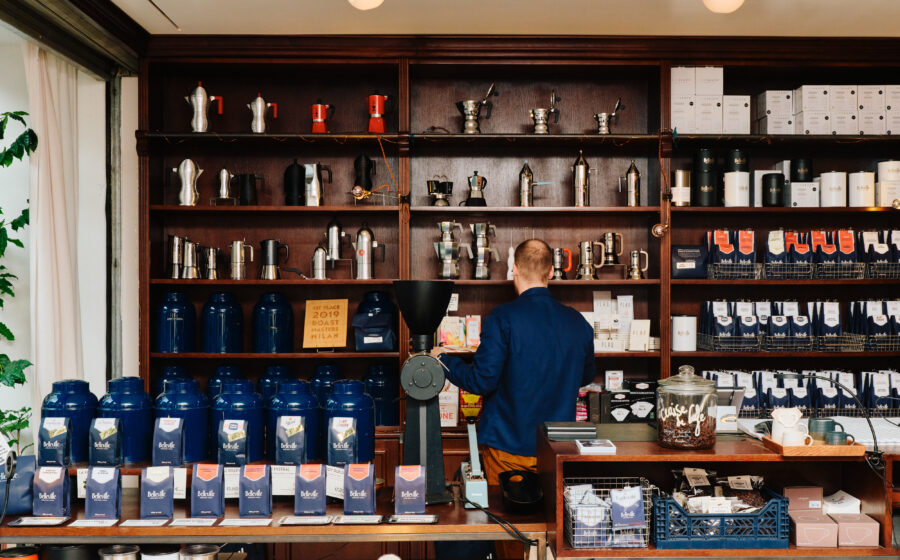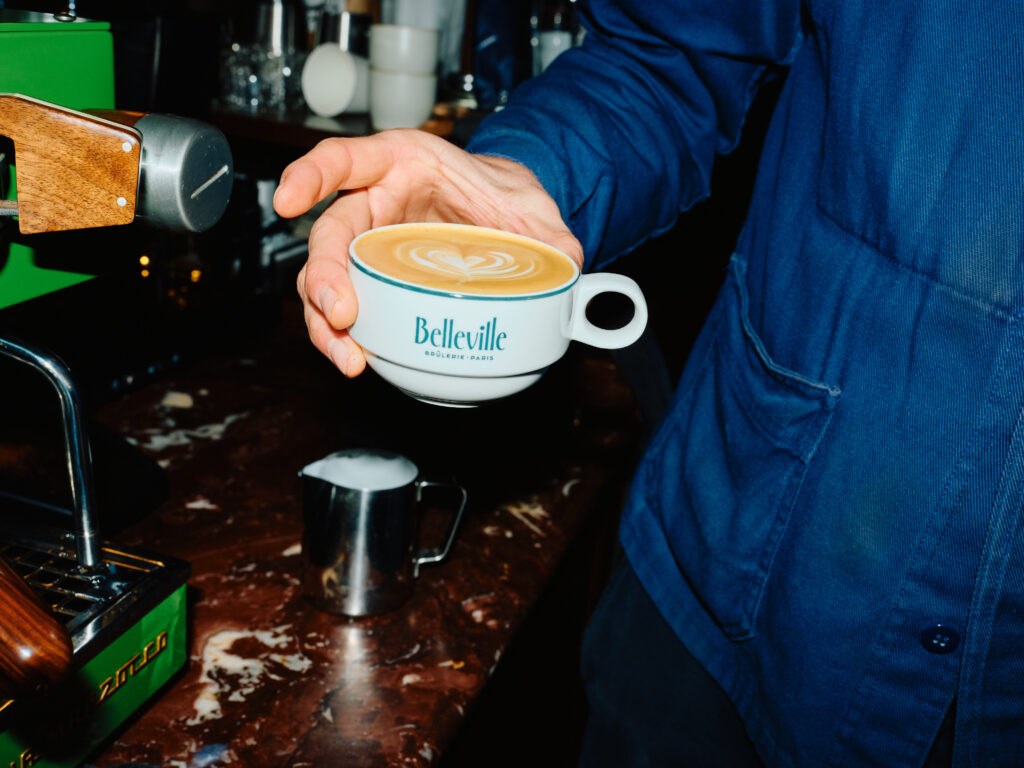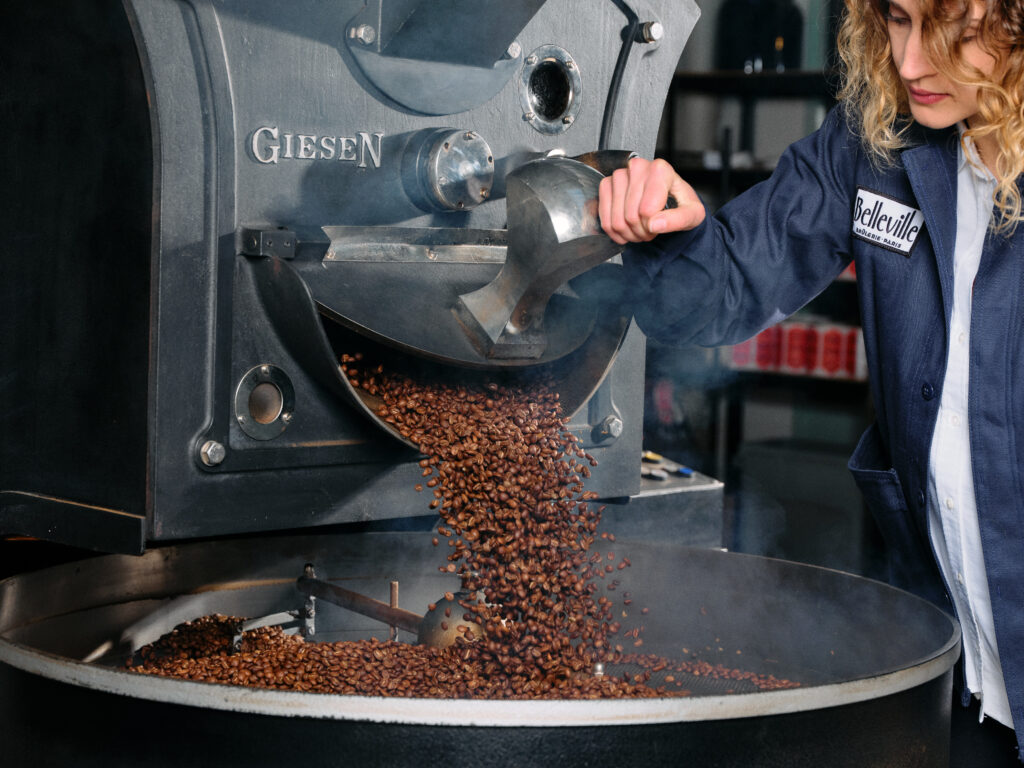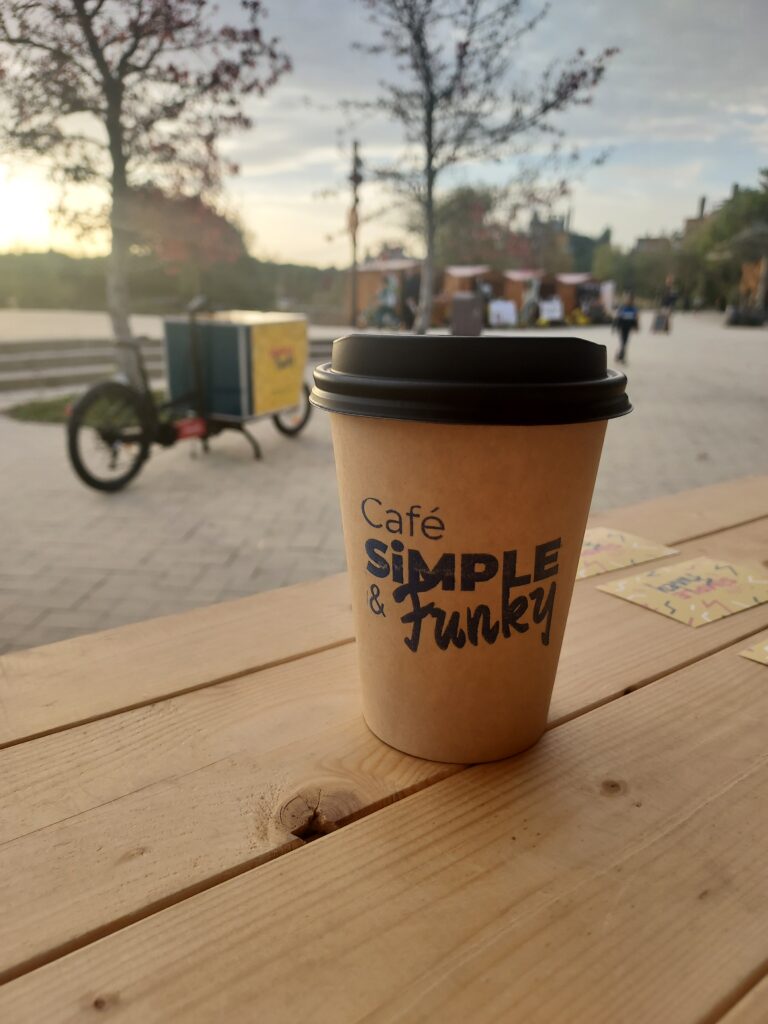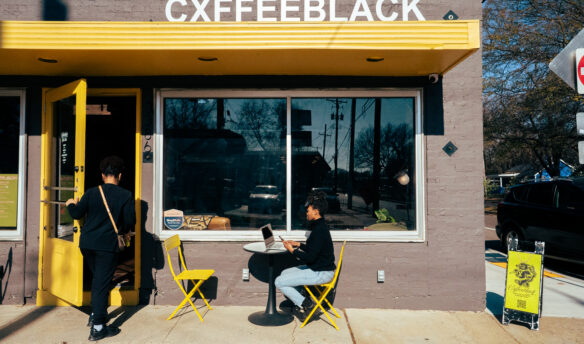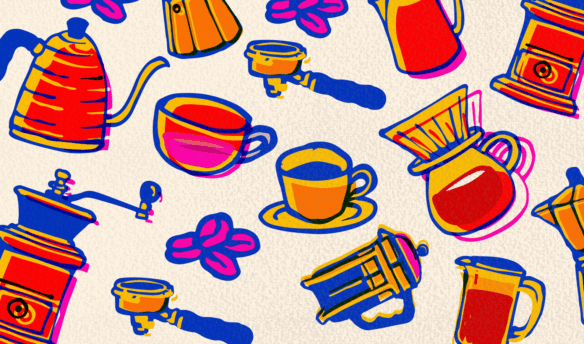Coffee is part and parcel of French culture. It is to the croissant what the beret is to the baguette: iconic pairings that have become national symbols. When you think of drinking coffee in France—and Paris specifically—you can likely conjure up images of patrons sitting on a sunny cafe terrace sipping on a coffee or folks having a quick espresso in the hustle and bustle of a busy bistro.
But what place does specialty coffee occupy in traditional French coffee culture? In France, specialty coffee is thriving and has grown leaps and bounds, especially in the last five years. However, it has often struggled to exist within traditional spaces, making specialty coffee’s journey sometimes complex as it works to find its place in French coffee culture and brushes up with traditional ideas of what coffee should be.
However, that hasn’t stopped specialty coffee from growing, led by coffee lovers and innovators that look to bridge the gap between the new and the traditional. By mixing elements of established French culture with modern approaches to sourcing, roasting, and crafting drinks, French coffee leaders are creating a wholly new and refreshing identity while honoring France’s enduring cafe culture.
The First Generation
The nexus of specialty coffee in France starts in Paris: since the early 2000s, cult specialty purveyors like Belleville Brûlerie, Café Lomi, L’Arbre à Café, and Terres de Café have made their mark not just on France but on the larger specialty coffee community.
But before all these coffee businesses became international brands, many of France’s first generation of coffee enthusiasts learned about specialty coffee at Paris’ La Caféothèque, says Tamara Louault, founder, roaster, and importer at Buna, a coffee business focused on highlighting and sourcing coffees from Ethiopia.
Louault, who started Buna as a way to connect to her Ethiopian roots, says that La Caféothèque, located in Paris’ 4th Arrondissement, served as a training hub for many leaders who would go on to start their own coffee businesses in Paris and throughout France. “That generation built the French specialty coffee empire in that setting,” she says. “They generated interest in a new product and way of consuming coffee and opened up many doors for us.”
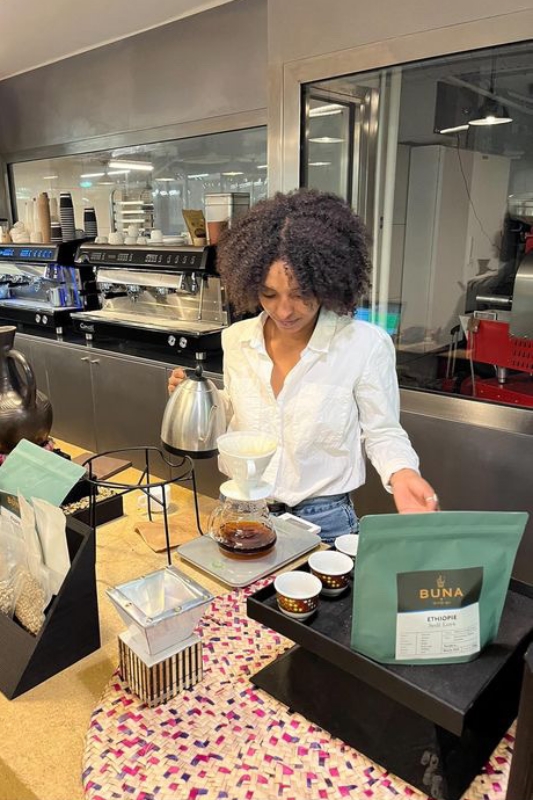
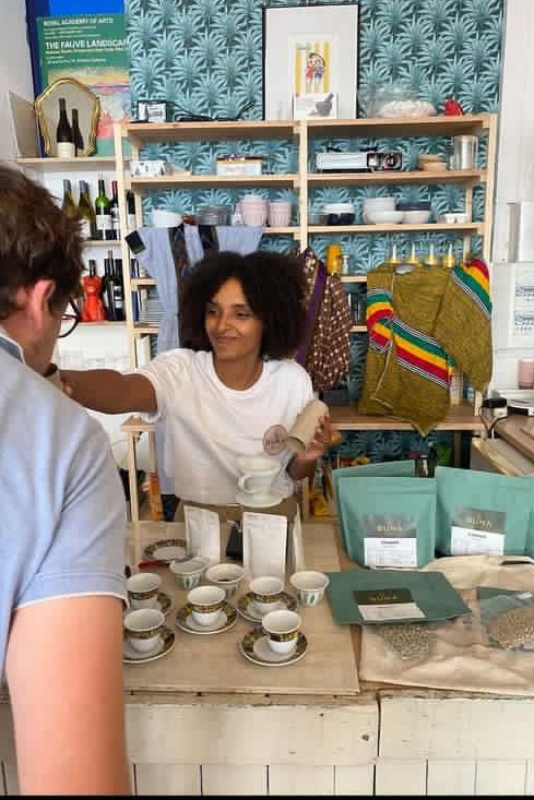
La Caféothèque, which opened in 2005, was, for a long time, one of the only places you could learn about specialty coffee in France. “In the beginning, La Caféothèque was all about les méthodes douces (manual brewing),” writes Anna Brones for Sprudge. “Back in 2005, it was a shop with a collection of 70 drawers, each featuring a coffee from different producer countries. In a country known for blends and espresso, that was revolutionary.”
With few resources or structures to gain knowledge, Louault acknowledges that La Caféothèque’s approach to coffee required immense work, patience, and dedication. However, French coffee professionals today benefit from this groundwork, which gives them the space to innovate and get creative.
“We’re making use of game-changing tools like co-roasting spaces,” she says, noting how quickly Paris’ coffee scene has expanded in the last decade. “We have easier access to knowledge to further elevate our sector—it’s an exciting time.”
Part of expanding the specialty coffee scene is making great coffee accessible in more places. In Paris, Louault worked on a project to open a cafe at Gare d’Austerlitz, a central train station, to expose more people to better quality coffee at a competitive price.
“Space and equipment are limited, but it feels like important work,” she says. She’s already seeing results in consumer behavior: “People used to come for an espresso with four sugars, but now they come specifically for our coffee, with little to no sugar. It’s not because we’re in a station that we have to neglect quality and taste.”
The Perfect Setting
Traditional coffee culture in France puts a premium on setting. In Paris, the price of coffee can change based on where you’re sitting (you might be charged a different fee for the same beverage depending on where you’re seated: at the bar, at a table, or outside on the terrace). Location also influences price—a coffee in a popular tourist destination will cost more than coffee at a neighborhood restaurant. Patrons are consuming and paying for an experience as much as they are for coffee.
Louault confirms that location remains a prime factor in French coffee consumers’ priorities.
She grew up in Tours, a city about 250 kilometers, or 150 miles, southwest of Paris, and learned about traditional coffee ideas through observing people drinking coffee in her hometown. “The French love sitting in a café terrace, regardless of what kind of coffee is in their cup, Louault says, noting that coffee often serves as a conduit for social gatherings—or is seen as a functional beverage. “It’s more about connecting with friends or a quick caffeine jolt than it is about taste.”
David Flynn took inspiration from French coffee-drinking culture when opening La Fontaine de Belleville. The co-founder of Belleville Brûlerie Paris, one of France’s most notable specialty coffee roasteries, says he was fascinated by French café culture, which inspired him to take over a small cafe that had been continuously in operation since 1908 (originally called La Fontaine). He relaunched the bistro in 2016 as a space where specialty coffee and traditional cafe culture could coexist.
“The café as a cultural institution remains anchored in French consciousness,” he says. “It serves coffee, food, wine, beer, and cocktails and is typically open at all hours of the day. So unless you can adapt specialty to that, you’re going to struggle to reach the average French consumer.”
Flynn quickly learned a lot of big lessons about how patrons enjoy coffee. “Takeaway is not a thing here. In the UK, it might be 90% of your business, but in France, maybe 30 at best,” he says. “It’s important to follow customer preferences, too,” he says. “At Belleville, we created crowd-pleasing profiles [for our coffees]: sweet with lots of body. Acidity is quite divisive in France, but fruity Ethiopian coffees do great here.”
The cafe has since changed hands but still serves coffee roasted by Flynn’s team at Belleville and sees consumer preferences slowly evolving. “One of the new owners was skeptical to begin with,” says Flynn. “Now he says he can’t drink any other coffee than ours. So yes, specialty can worm its way into the French mindset.”
Paris and Beyond
Although more and more specialty coffee purveyors are French, many of the early leaders of the specialty movement came from elsewhere, influenced by the coffee cultures of places like the United States, the UK, or Australia.
Paul Arnephy co-founded Lomi Roastery and Café, one of Paris’ first and best-known specialty operators. Originally from Melbourne, Arnephy settled in Paris and was heavily influenced by French culture and purveyors who prize dedication and pursue perfection.
“France has the potential to be a world leader in coffee,” he says. “Just look at its gastronomy and wine sectors… They’re doing excellent work.”
When he first came to Paris around 2010, the specialty coffee scene was still nascent—so much so that in the same year, New York Times columnist and coffee writer Oliver Strand wrote an article titled, “Why Is Coffee in Paris So Bad?” Arnephy was faced with very traditional French coffee habits that did not align with the specialty scene he’d witnessed abroad.
“Many who pioneered specialty in France went to the US to get the energy of what it is,” Arnephy says. “It took a major outside influence to get the ball rolling. But now I think it’s time to take French ownership of specialty and integrate it into the culture, and it’s already happening.”
Lomi opened in 2010, and since then, an incredible number of roasteries and coffee shops have opened in Paris. Arnephy says it feels like a new roastery or cafe is opening almost every week.
“The quality of roasting green coffee in France is becoming excellent—world-class,” he says. “Since I’ve been doing consulting and training, I’ve been working with roasters who are placing a priority on producing excellent quality [coffee].”
But specialty coffee is spreading beyond the capital, with cities like Bordeaux, Lyon, Marseille, Nantes, Reins, Toulouse, and Tours making a name for themselves. “No matter where you go in France now, there’s no excuse to drink bad coffee,” says Arnephy.
Nicolas Le Guen owns a small coffee roasting operation in Thorigny-sur-Marne, a Parisian suburb, called Café Simple and Funky. He’s seen a real evolution of coffee in France in recent years: “[Coffee is] a noble product in its own right, and no longer just the disappointing conclusion to a very good meal.”
However, specialty coffee is still relatively unknown in the suburban towns where he operates, but Le Guen is determined to change that. “I can spend several weeks without talking about specialty, slow coffee, Kalita Wave… These remain mostly alien concepts here.” But he says that 90% of his customers ask him about origin, traceability, and terroir—a stepping stone, he feels, for patrons to explore the potential of specialty coffee. He describes his work as part of an “undercover specialty movement.”
Leguen has secured a loyal suburban clientele by serving coffee at local markets and making drinks accessible and approachable. “I’m a coffee lover, and my little happiness is to help it achieve its glorious potential—and to share that with others. Each one of my customers who discovers the product, appreciates it and sees their taste evolve over time, that’s what drives me forward,” he says.
He attributes a lot of his success to home grinders—he says more people than ever have a coffee grinder at home—and is excited to play a role in kindling the interest of people eager to learn more about coffee. “I’ve noticed a growing clientele searching for a quality coffee experience at home,” he says. “Every week, I get new clients requesting quality coffee beans and tips on how to best prepare it themselves.”
Specialty coffee has made many inroads in France, bringing new options to a market with a long and revered coffee history. Although there are many specialty purveyors in France now, we’re still in the middle of a burgeoning era for coffee, and there’s still room to explore and expand. But it’s important to note that all the leaders we chatted with aren’t looking to erase or eradicate traditional coffee culture but rather find ways to weave the traditional in with the new and produce coffees, spaces, and experiences that are both novel and unequivocally French.

